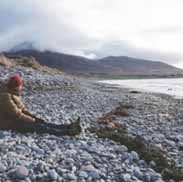UPS Driving School "The 5 Seeing Habits" and "10 Point Commentary" – Flashcards
Unlock all answers in this set
Unlock answersquestion
"Aim high in steering."
answer
Rule 1?
question
Imaginary target - baseball/dartboard
answer
Rule 1, How do you do it?
question
Centers car in traffic lane: Safe path on turns.
answer
Rule 1, What does it do for you?
question
"Find a safe path well ahead."
answer
Rule 1 Key phrase.
question
"Get the big picture."
answer
Rule 2?
question
How wide and deep? What's in it? Objects and ground.
answer
Rule 2, How do you do it?
question
Keeps you away from billboards. Smooth stops and turns. Buys time.
answer
Rule 2, What does it do for you?
question
"Stay back and see it all."
answer
Rule 2 Key phrase.
question
"Keep your eyes moving."
answer
Rule 3?
question
Move eyes: front - 2 seconds. Rear 5 - 8 seconds.
answer
Rule 3, How do you do it?
question
Keeps you alive at intersections. Keeps eyes ahead of car.
answer
Rule 3, What does it do for you?
question
"Scan don't stare."
answer
Rule 3 Key Phrase.
question
"Leave yourself an out."
answer
Rule 4?
question
Have escape route. Take path of least resistance.
answer
Rule 4, How do you do it?
question
Space on all sides, but always in front.
answer
Rule 4, How do you do it?
question
"Be prepared, Expect the unexpected."
answer
Rule 4 Key phrase.
question
"Make sure they see you."
answer
Rule 5?
question
Communicate in traffic - horn, lights, signals.
answer
Rule 5, How do you do it?
question
Establishes eye-to-eye contact.
answer
Rule 5, What does it do for you?
question
"Don't gamble. Use your horn lights and signals"
answer
Rule 5 Key phrase.
question
Look left, right, and left. Check rear view mirrors.
answer
1. STARTING UP AT INTERSECTION
question
When stopped in traffic, a car length of space is required from the vehicle ahead. This will allow enough space to pull your car around the vehicle ahead if it should stall and will give you an instant cushion if it should make a turn.
answer
2. WHEN STOPPED IN TRAFFIC
question
This step is followed when stopped at an intersection behind another vehicle. Check rear view mirrors.
answer
3. COUNT ONE-TWO-THREE AFTER VEHICLE AHEAD HAS STARTED TO MOVE
question
This is to keep you from getting a fixation on the car ahead and to allow time to obtain and hold the proper eye-lead time.
answer
4. FOUR TO SIX SECONDS FOLLOWING TIME FOR SPEED UNDER 30 MPH, 6-8 SECONDS FOR SPEEDS OVER 30 MPH.
question
This is the best way to keep your eyes ahead of your wheels and is the depth at which your eyes should be focused most of the time.
answer
5. EIGHT TO TWELVE SECONDS EYE-LEAD TIME
question
Look and see whether or not cars at the curb are occupied. This is the only time they are a threat. If they are occupied the driver is probably about to exit from the car or pull out from the curb.
answer
6. SCAN STEERING WHEELS
question
The point of decision is an imaginary line that you set up between your vehicle and the cross-walk when you are approaching an intersection with a stale green light. Since you are not sure of the light, you must be sure of the point behind which you will stop if the light should start to change. This helps you get the big picture.
answer
7. STALE GREEN LIGHTS
question
When you must depend on anyone along the edge of your driving path to stay put until you are past the danger point, it is imperative that you get their attention. The horn and lights are your communication tools when you do not have eye contact. Proper use of the horn to express a friendly message seems in many instances to be a lost art. Only when you have eye contact can you expect the other person to act in a reasonably predictable manner to avoid a dangerous situation.
answer
8. EYE CONTACT
question
Glance over left shoulder when pulling from curb.
answer
9. PULLING FROM CURB
question
As a rule of thumb, once every five-eight seconds.
answer
10. USE OF MIRRORS



